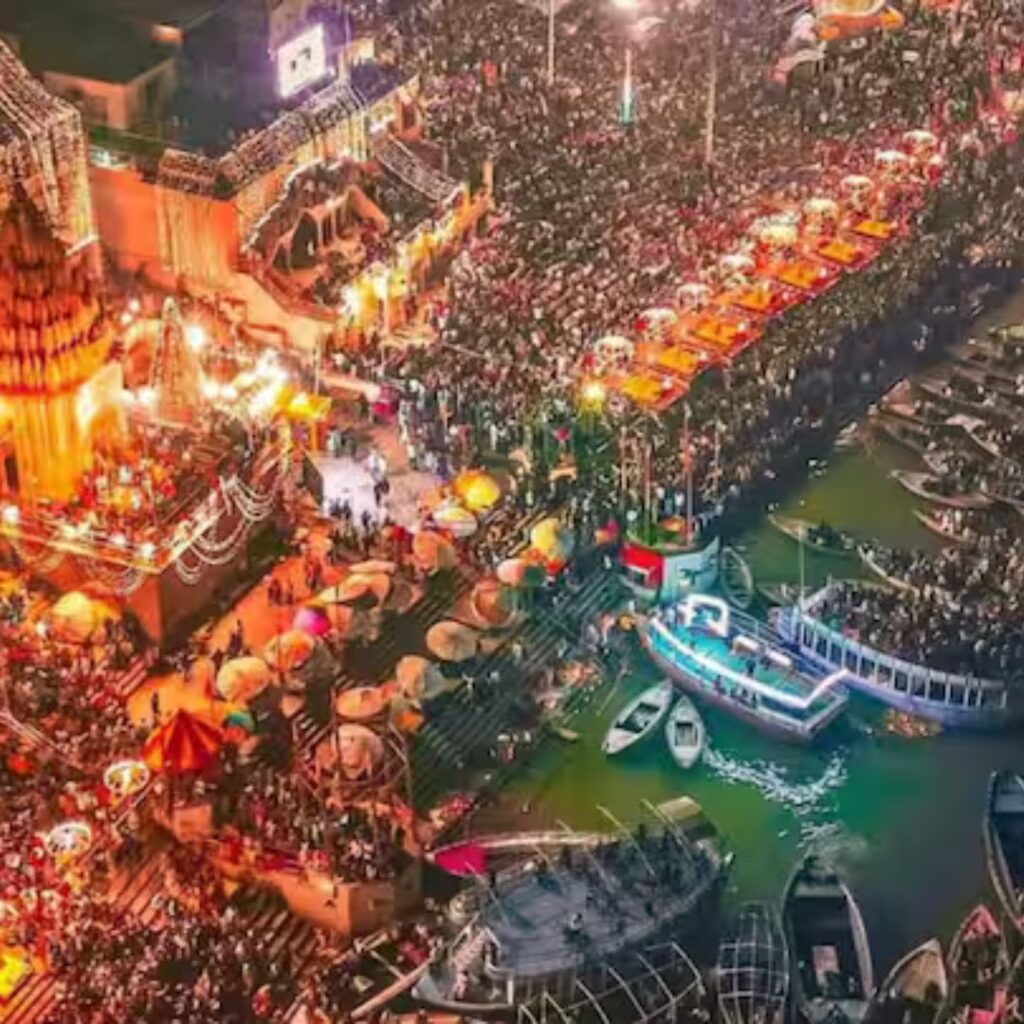The Significance of Dev Diwali is a sacred Hindu festival celebrated to honor the gods and goddesses. This comprehensive article explores the history, rituals, and significance of Dev Diwali, as well as ways to participate in the celebrations.
The Significance of Dev Diwali

Introduction to Dev Diwali
Dev Diwali, also known as Dev Deepawali or the Festival of Lights of the Gods, is a significant Hindu festival celebrated on the full moon day in the month of Kartik (October-November). It is observed fifteen days after the popular festival of Diwali and is dedicated to honoring the gods and goddesses. Dev Diwali holds immense spiritual and cultural significance for Hindus, as it is believed to be the day when the gods descend to Earth to bathe in the holy waters of the Ganges River.
This auspicious day is marked by elaborate rituals, prayers, and offerings to the deities, as well as the lighting of thousands of diyas (oil lamps) along the ghats of the Ganges River. Dev Diwali is a time for devotees to express their gratitude and devotion to the gods, seeking their blessings for health, prosperity, and happiness. The festival symbolizes the triumph of light over darkness, good over evil, and knowledge over ignorance.
History and Origins of Dev Diwali
The Significance of Dev Diwali : The origins of Dev Diwali can be traced back to ancient Hindu scriptures and legends. According to Hindu mythology, Dev Diwali is believed to have started when Lord Vishnu defeated the demon Tripurasura on this day. It is said that the gods and goddesses celebrated this victory by lighting diyas and offering prayers to Lord Vishnu. Since then, Dev Diwali has been observed as a day of celebration and worship in honor of the gods.
The Significance of Dev Diwali: Another popular legend associated with Dev Diwali is the story of Lord Shiva’s victory over the demon Jalandhara. It is believed that on this day, Lord Shiva destroyed the demon and restored peace and harmony to the world. Devotees commemorate this event by lighting diyas and performing special rituals to honor Lord Shiva and seek his blessings.
Rituals and Traditions of Dev Diwali
The Significance of Dev Diwali : Dev Diwali is celebrated with great fervor and devotion by Hindus around the world. The day begins with devotees taking a holy dip in the Ganges River at sunrise, followed by prayers and offerings to the gods at temples and shrines. Special pujas (rituals) are performed to invoke the blessings of the gods and seek their protection and guidance.
One of the most significant rituals of Dev Diwali is the lighting of diyas along the ghats of the Ganges River. Thousands of oil lamps are placed on the steps leading down to the river, creating a mesmerizing sight of flickering lights reflected in the water. This symbolic act is believed to welcome the gods and goddesses to Earth and dispel darkness and negativity.
Importance of Honoring the Gods during Dev Diwali
Honoring the gods during Dev Diwali is considered essential for spiritual growth and well-being. By expressing gratitude and devotion to the deities, devotees seek their blessings for health, prosperity, and happiness. The act of worshiping the gods is believed to purify the mind and soul, leading to inner peace and enlightenment.
Dev Diwali is also a time for self-reflection and introspection, as devotees contemplate their actions and seek forgiveness for any wrongdoings. By honoring the gods and seeking their forgiveness, devotees strive to lead a righteous and virtuous life, in accordance with the teachings of Hindu scriptures.
Celebrations and Festivities of Dev Diwali
Dev Diwali is celebrated with great enthusiasm and joy in various parts of India, particularly in the holy city of Varanasi. The ghats of the Ganges River come alive with colorful decorations, music, dance, and fireworks, creating a festive atmosphere that attracts thousands of pilgrims and tourists.
During the evening, a grand aarti (ritual of worship) is performed on the ghats, where priests offer prayers and hymns to the gods while devotees light diyas and offer flowers and sweets. The aarti is accompanied by the chanting of mantras and the ringing of bells, creating a divine ambiance that fills the air with spirituality and devotion.
FAQ
Q: When is Dev Diwali celebrated?
A: Dev Diwali is celebrated on the full moon day in the month of Kartik (October-November), fifteen days after the festival of Diwali.
Q: What is the significance of lighting diyas during Dev Diwali?
A: Lighting diyas symbolizes the triumph of light over darkness, good over evil, and knowledge over ignorance. It is believed to welcome the gods and goddesses to Earth and dispel negativity.
Q: How can I participate in Dev Diwali celebrations?
A: You can participate in Dev Diwali celebrations by visiting temples and shrines, lighting diyas, offering prayers and offerings to the gods, and attending aarti ceremonies on the ghats of the Ganges River.
Ways to Participate in Dev Diwali Celebrations
There are several ways to participate in Dev Diwali celebrations and honor the gods. You can start by taking a holy dip in a sacred river or water body, such as the Ganges River, to purify your body and soul. You can then visit temples and shrines dedicated to the gods and offer prayers, flowers, and sweets as a sign of devotion.
Another way to participate in Dev Diwali celebrations is by lighting diyas at home or in temples to create a warm and welcoming atmosphere. You can also decorate your surroundings with colorful rangoli designs and flowers to enhance the festive spirit. Additionally, you can attend aarti ceremonies at temples or on the ghats of the Ganges River to witness the grand rituals and seek the blessings of the gods.
Dev Diwali is a time for spiritual renewal and connection with the divine. By participating in the celebrations and honoring the gods, you can experience a sense of peace, joy, and fulfillment that will stay with you long after the festival is over. Embrace the traditions and rituals of Dev Diwali with an open heart and mind, and let the light of the gods illuminate your path towards enlightenment and inner harmony.



